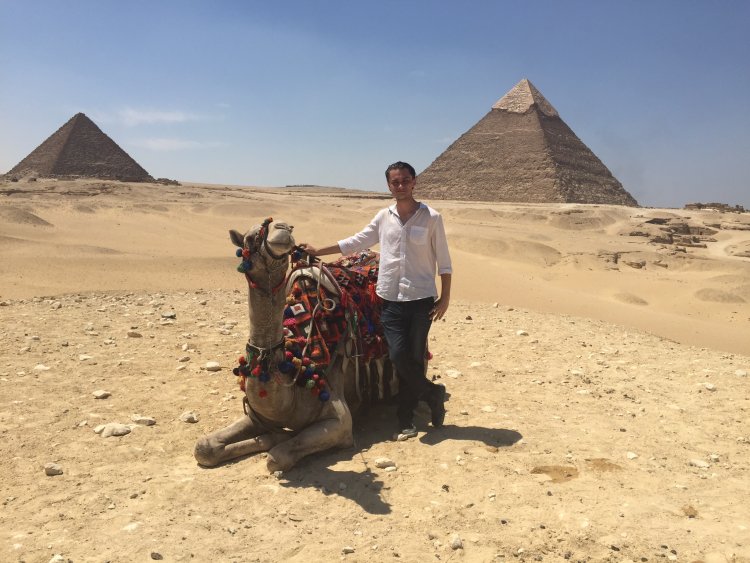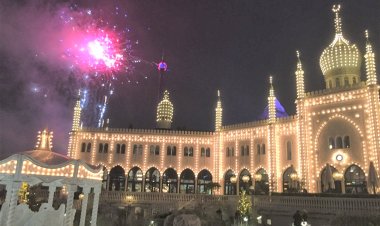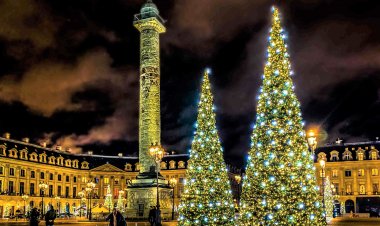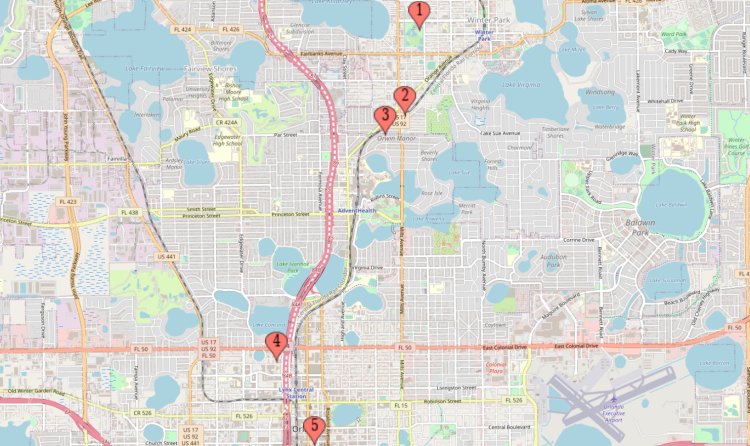Egypt, Land of Mystery

By MARSHALL SWANSON
"That's all for tonight," my grandfather said as he knelt to pray. When I went to bed that night, I dreamt of pharaohs and pyramids. He often told me stories, both true and ones of embellishment, about his trip there (meeting mummies--- surely a way to entrap a young man's imagination). A few years earlier, he perked my interest Egypt by bringing me to a local theater which showed a documentary on the history of that land. Despite my lack of credentials as a military leader, I often feel akin to George C. Scott's Patton when I say that I love the Middle East (or Arab World, for that matter), from "its combination of the Bible and Hollywood."
I experienced the real and genuine Hollywood from a young age. My grandfather watched everything from the 20s onward to the 60s. I became anathema to my classmates, not only as a lower-tiered serf among private school aristocrats but also as the anachronistic young tyke in a school full adolescent, "high-class" snobbery. They did not know what to make of my antiquated perspectives on film and music.
Relegated to the class of nerd-dom, I later grew to be the total opposite: adrenaline addict - even in the face of total death and destruction. Indeed my travels through the warring states of the Middle East proved this. Egypt is today relatively safe compared to many other states in the Middle East and North Africa, though women should take care to travel with a partner or friend.
I spent the first day in Egypt in Cairo at my friend Mohammed's house in Giza. I forgot I even slept next to the greatest stone structures man ever created that night. Why, you may ask? My fatigue exhausted me from the long flight. But, in the morning, I recovered from my fatigue and started down the road to the Great Pyramids (many pyramids exist in Egypt but the Great Pyramids are the most exquisite). Once you arrive there will be an official ticket center but if you have a guide you can circumvent this. So long as you have a trusted guide you will be fine.
Sometimes scammers will try to rip off unsuspecting tourists walking around the Great Pyramids. Don't believe them when they try to extort you because you "walked in a forbidden" area. If they are well connected they might bring the police but they are easily bribed. This may be disconcerting to a foreign Westerner but it is common here to act in this way. The best way to see the Great Pyramids from the outside is by camel. You will no doubt feel like Indiana Jones even though you left your bull whip at the house.
At the end of the ride, be sure to check the camel for laceration. If abuse is present, you have a moral obligation and a financial one to pay less. Egypt and Cairo possess so much more than just pharoahic exhibits. Sure, the Egyptian museum endows the visitor with the awe of seeing artifacts from the time of Moses. But it also includes artifacts through the Ptolemaic period and beyond. While in Cairo, take a trip to the oldest Mosque in the Arab world, founded by relatives of Mohammed. Visit the church where Jesus and his parents fled in exile. Or see the oldest and only two remaining Synagogues in the town. For seekers of nostalgia, stroll through the old city of Cairo to visit the graves and ancestors of those who came before, without the Indiana Jones-style car chase at the end.

My personal favorite was the former British Officers' Club at the Windsor Hotel. Imagine being with TE Lawrence after a long hike from Aqaba!
Though Egypt was saturated with Westerners during the hey-day of the British Empire, very few travel there comparatively today. This was not entirely the case before the recent Egyptian Revolution or the 9/11 attacks. However, during the pandemic, as long as travelers take precautions, anyone can travel to Egypt for dirt cheap prices. A total itinerary from north to south should cost no less than 10k dollars without agency or arrangements by a special contractor.
Taking the tourist train is the safest, most economical and the most fun way to travel to the south. The most important place to see in the South of Egypt is the Valley of the Kings in Aswan. No one knows how many Kings and Queens of Egypt might be buried here. But the personal memories you bring from this place will be astounding to say the least and real treasures for years in the future. The best treasures manifest in the form of pictures. But in the tombs of the Valley of the Kings, photography is restricted. Officially, no photography, flash or no flash, can be undertaken in the tombs for the protection of the artwork. However, the reality is that flash or no flash, photography does little to the artwork on the walls according to the best scientists and experts on Egyptology and archaeology. To snap your picture without being seen is difficult but can occur through distraction techniques. You might also use the most common and easiest method across Egypt - bribery, though it is best to let the tomb guards ask you first. This method should work well in the museums as well, though with cameras today there is not a guarantee. The main reason for prohibition on photography comes to down to profit from the tombs. Without selling post cards or poster boards, the Egyptian Antiquities Authority finds little funds from the already bare-bones entry fee to these sites. Outside the confines of the Valley of the Kings, the Temple of Hatshepsut, Karnak Temple and the Colossi of Memnon all bring wonder to the eyes of those beholding them and deserve a long sight-seeing tour.
As for means of transport, I took the plane from Cairo, but the most luxurious trip anyone can take is on boat from Cairo through the Nile River to Aswan preceding towns. Along the way, a stop at Elephantine Island in Aswan will give travelers a glimpse into the past of Nubia. Nubia, mentioned in the Bible several times, represented Egypt's greatest southern enemy in ancient times. The Nubians, who were of a darker complection, lived in modern Sudan where they also built pyramids. They were forced out of their area in Egypt to make way for the Nassar Dam and sent to Elephantine Island. Elephantine Island provides a perfect bookend to the beautiful temples and tombs of the Aswan region.
Despite the stereotypes of bombs and explosions, the Middle East and Arab Lands are very friendly places. But like anywhere in the Second World or Developing World, you must take caution. Everyone by all means is friendly and will generally be kind and gracious to you. But understanding and respecting local and religious customs is key. Women should travel with a male companion, and males should have a guide unless they are experts in the region.
Egypt's history is mysterious, its future a mystery and the present a true adventure to anyone with a love for travel.



Left to Right (clockwise): Karnak, the Nile River, the Great Pyramids of Giza
(Orlando Local News founder, Roger Swanson, right hand corner).

 Marshall S. Swanson
Marshall S. Swanson 
















